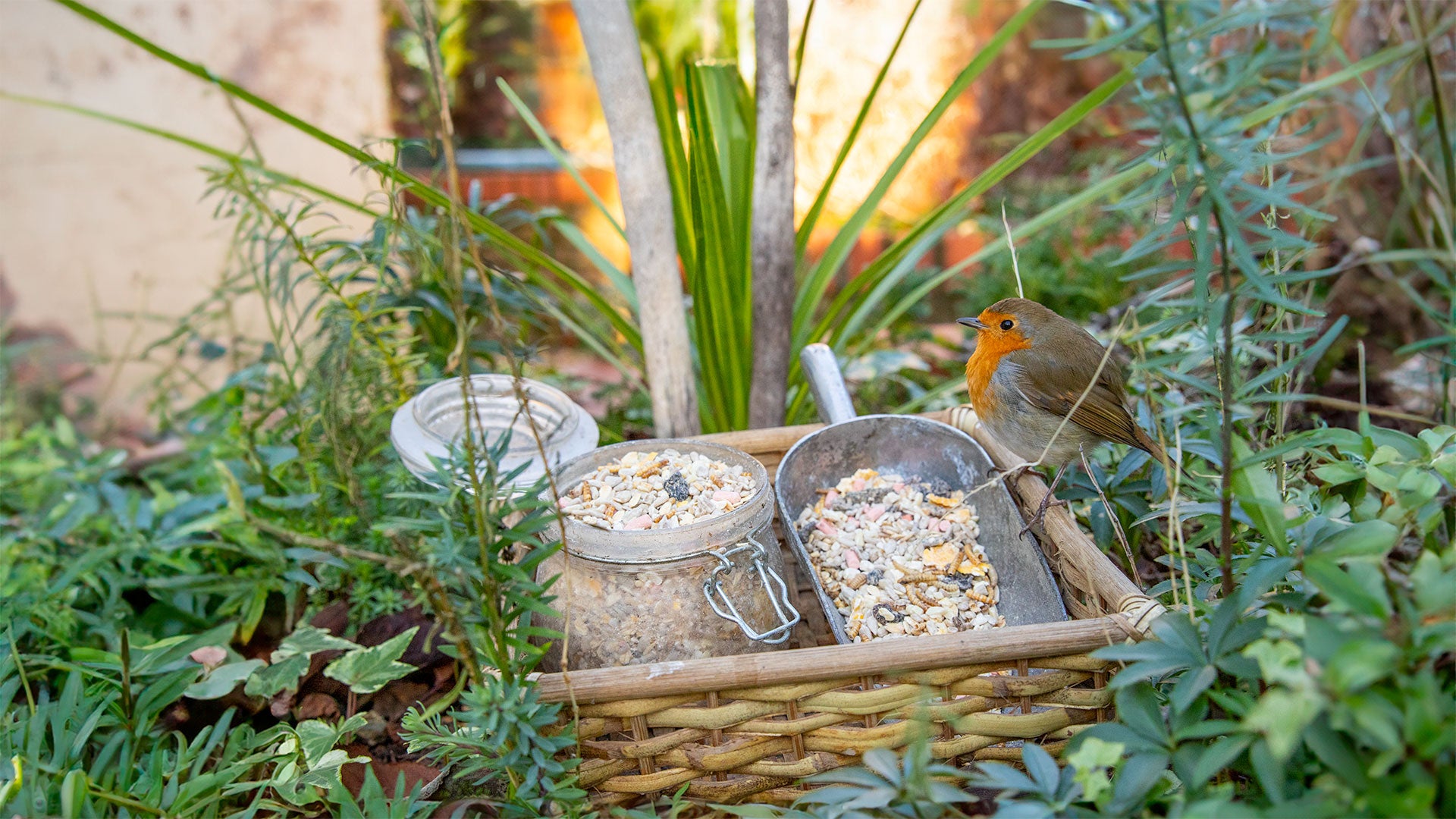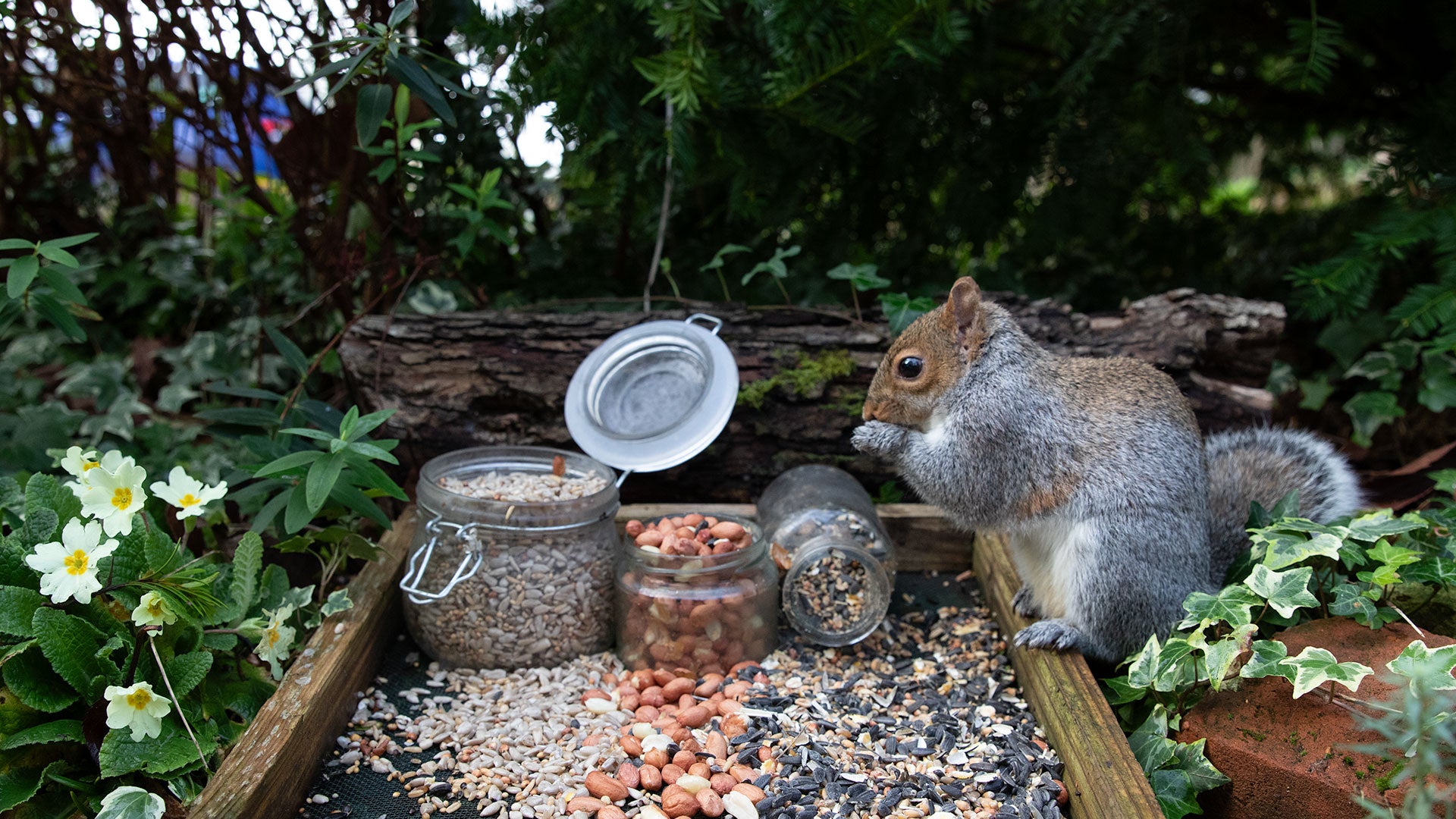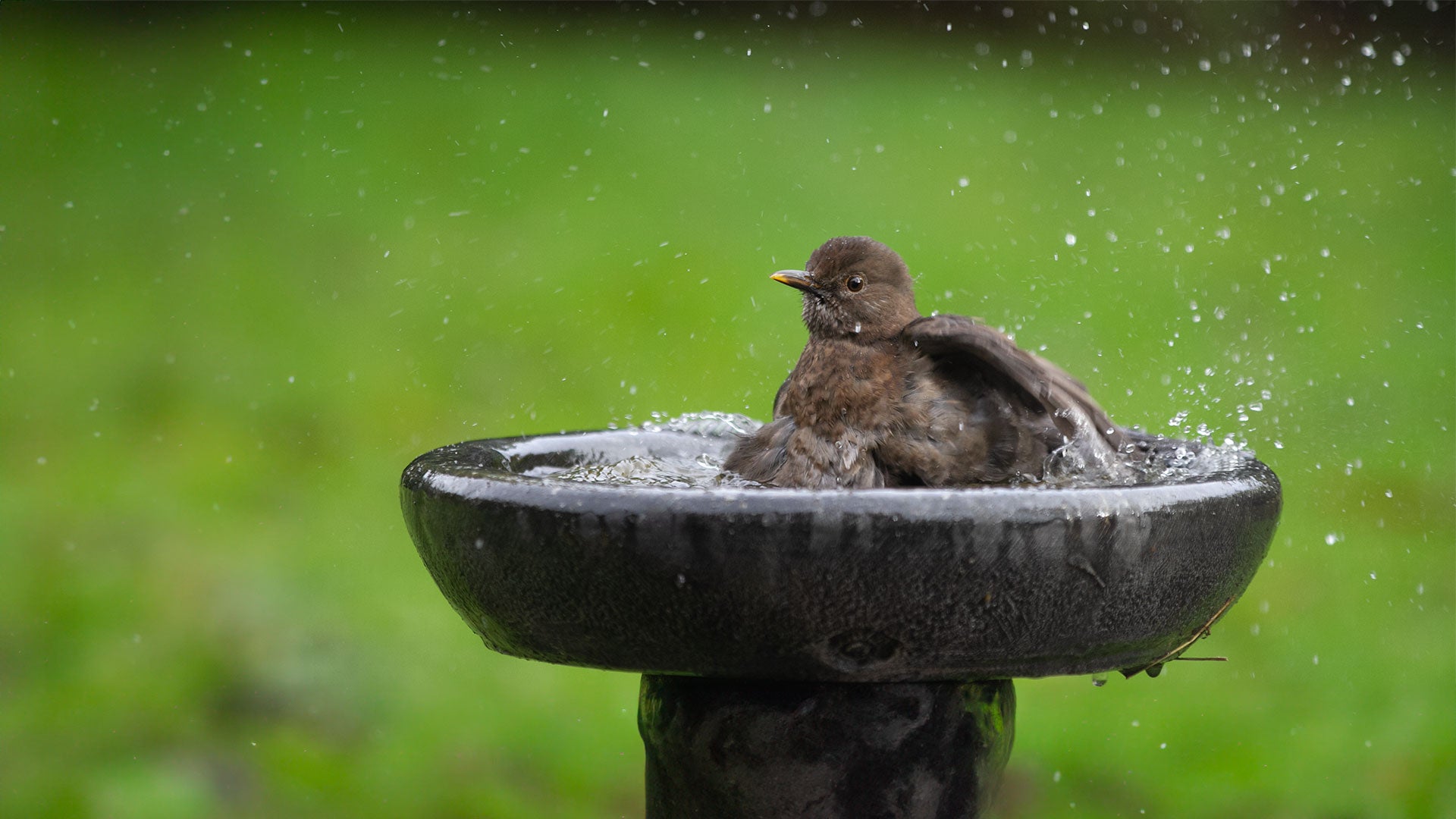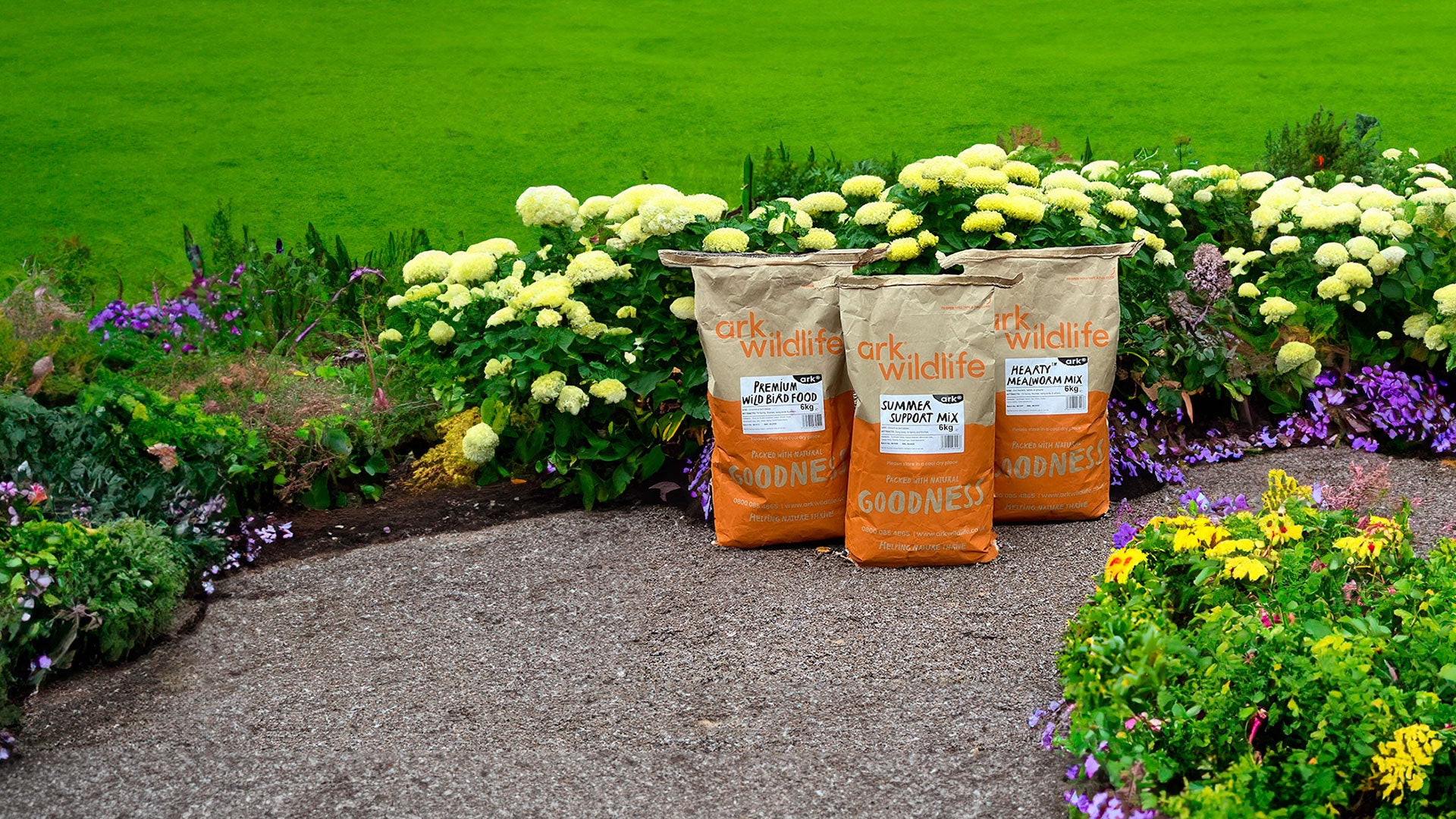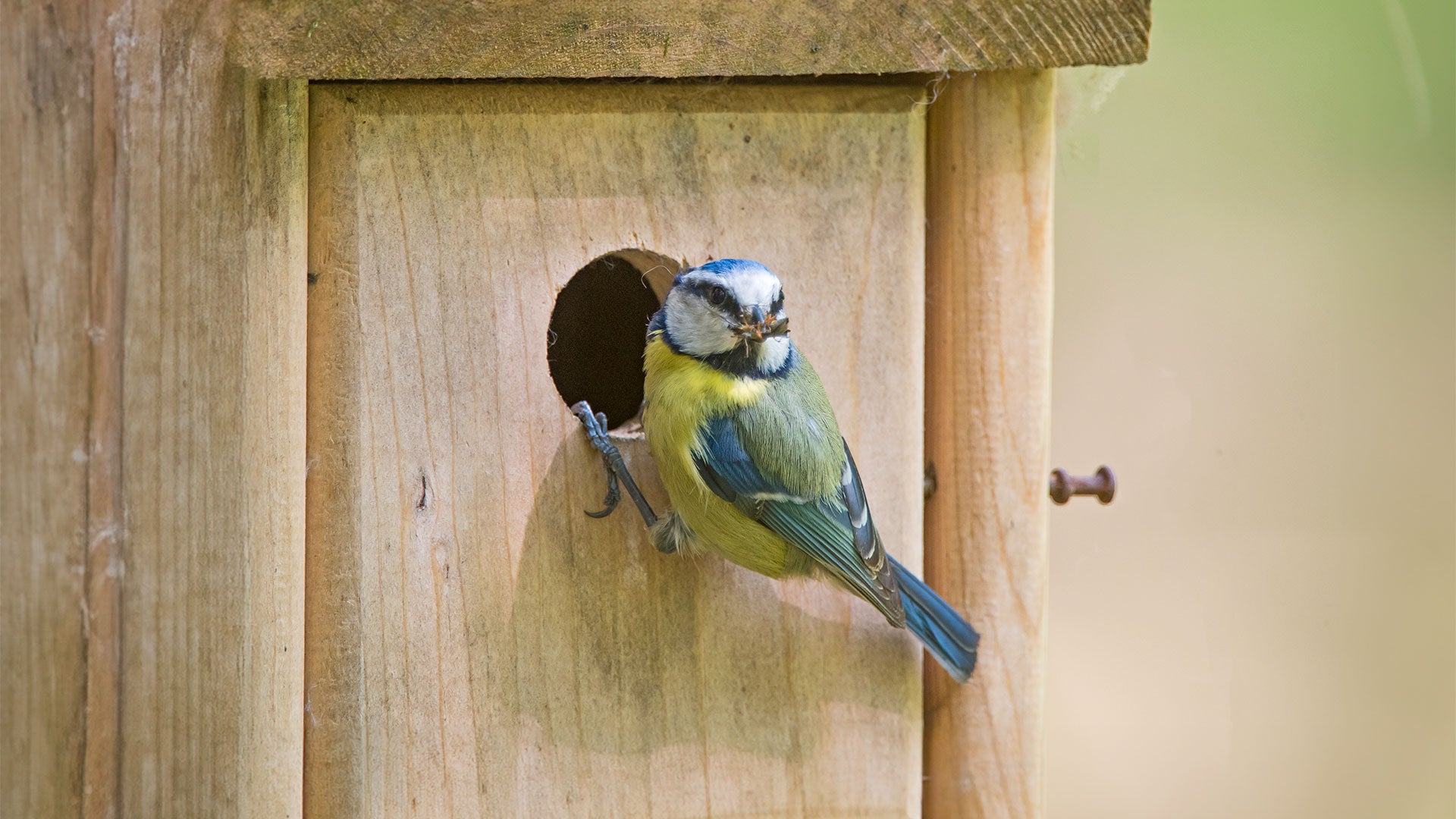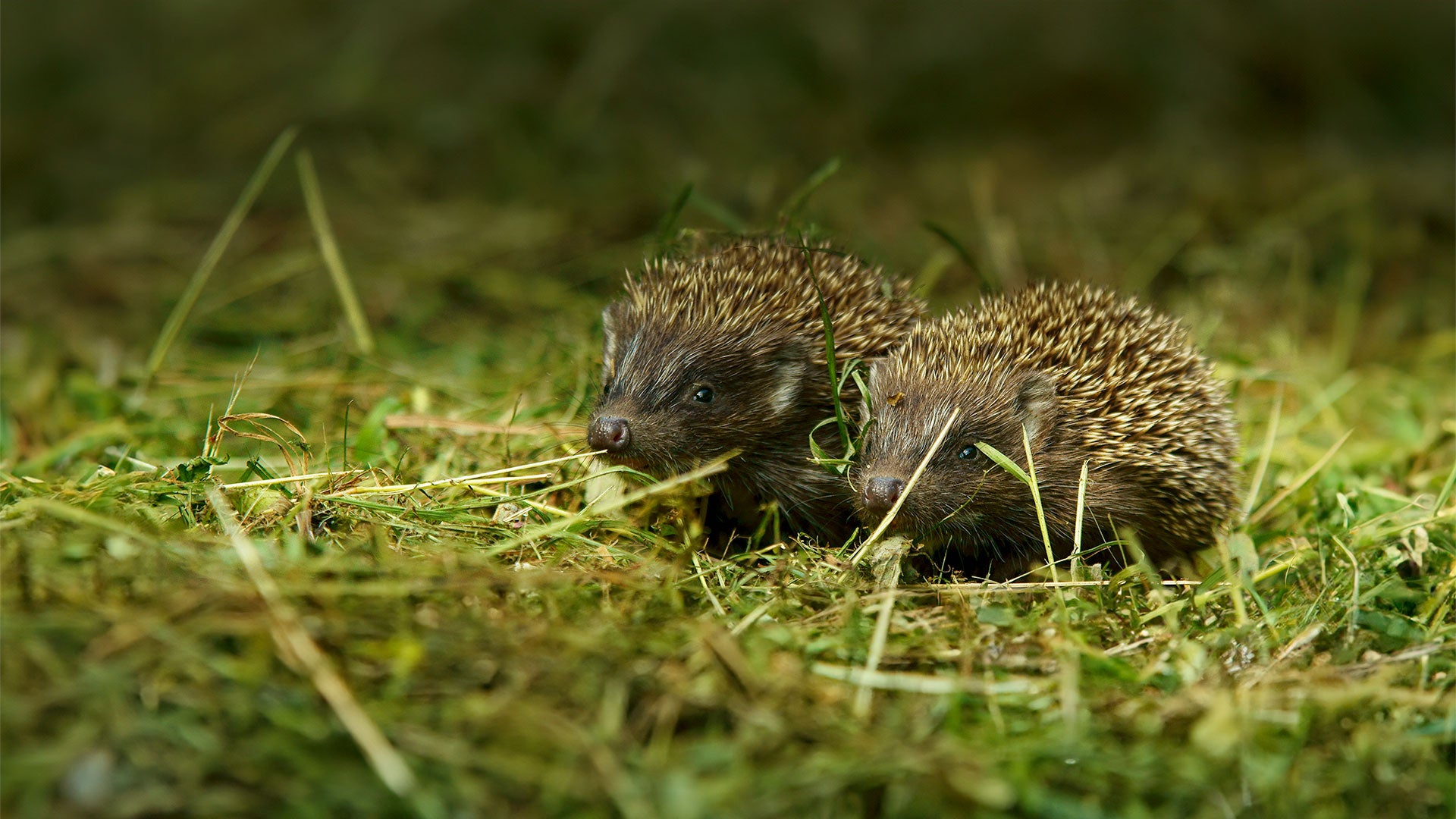Like all living things, rats need food, water and shelter to survive and therefore wildlife friendly gardens are prone to attracting them. However, by removing or restricting access to any of these, as well as taking preventative measures, rats will be less likely to stay in your garden.
Rats are mostly nocturnal so you might not see them, but there are many telltale signs to look out for. You might become aware that bird food is being eaten at night, or you might spot their ‘runs,’ grooves of bare soil up to 10cm wide, leading from covered areas to bird tables or feeder poles. You might also find their tunnels, which are circular holes 6-9cm in diameter. You might also find small piles of their smooth cylindrical droppings, usually 15mm long by 5mm wide.

As well as tunnelling in soil, they can also set up home beneath decking, in compost heaps, sheds and greenhouses. Habitats intended for other occupants may also become home to rats, hedgehog houses are one example.
Rats are considered vermin and spread many potentially serious diseases, including Leptospirosis (which can lead to Weil’s disease), Murine Typhus (through bites), and salmonella among others. Councils across the UK have a responsibility to keep areas free from rats and can serve notice on home and landowners to take action to destroy them.

How to deter rats from your garden
Rats look for places to live that provide food, water and shelter, by removing or restricting access to these things, you will help to deter rats. There are also actions you can take to make your garden less inviting to rats.
Rats have a keen sense of smell and some strong odours they avoid. Mint, garlic and onion are good plants to grow and strong-smelling essential oils such as peppermint can be effective. Other solutions can be sprinkling pepper or chilli around their runs or nesting holes. Dousing cotton wool balls with smelly essential oils, bleach, or vinegar and stuffing it as far as possible into their holes can also work wonders.
How do I keep rats off my bird feeders?
To stop rats from visiting and stealing your bird food, you can take a number of steps.
- Use squirrel baffles. Install baffles (cone or dome-shaped barriers) on the poles of your bird feeders. These prevent rats as well as squirrels from climbing up to reach the feeders.
- Place bird feeders up high. Position your bird feeders at least 6-feet off the ground and well away from any nearby walls, fences, shrubs or trees. This will prevent rats jumping onto the bird feeders.
- Use rat proof bird feeders. Invest in feeders designed to close off access to the food when a heavier animal, like a rat, tries to feed. The squirrel buster range and Leto Bird Seed Feeder are good examples of such feeders.
- Choose open places for bird feeders. Rats do not like being in the open, so place feeders away from dense borders, shrubs, or other hiding spots that rats may use to approach unnoticed.
- Clean up spilt seed. Regularly clean the area around the feeders to remove any spilled seeds and use ‘no mess’ mixes to reduce waste. Rats prefer to feed off the floor and will welcome seeds that fall to the ground.
- Reduce food access: Only fill the feeders with as much food as the birds will eat in a day and take feeders in at night. This reduces the opportunities for rats to access food.
- Limit ground feeding. Rats naturally feed off the floor. By moving food up on to a bird table or hanging feeder, you can reduce the food available and deter rats from feeding.
- Secure compost and food waste. Nothing attracts rats faster than the smell of composting or rotting food. Secure compost heaps to prevent any access by rats and remove all fallen fruit or vegetable waste from gardens. Food bins also need to be kept clean and secure.
- Eliminate access points. Inspect your garden boundary for entry points and seal them ideally with metal chicken wire to prevent rats from entering.
- Add pepper or chilli to bird food. Rats do not like the smell or taste of hot peppery foods, whereas birds are missing the taste buds to detect it. Mixing chilli or cayenne into bird food acts as a strong deterrent.

Taking these steps should significantly reduce the likelihood of rats visiting your bird feeders and will help deter and remove them even after an invasion.
Will rats leave a garden after stopping bird feeding?
If rats have moved into your garden because you are feeding the birds, the surest way to deter them is to stop putting food out for up to 6-weeks. You will also need to ensure there are no other food sources and that your neighbours have also stopped feeding the birds.
A less drastic measure is to ensure rats cannot get to the bird food. Using squirrel baffles on poles and rat proof bird feeders (good mechanically closing squirrel proof feeders do this well) can both be effective.
Rat burrow signs of rats in garden
If you haven’t seen a rat but suspect their presence, clues include finding 10cm wide clear trails (rat runs) between cover and potential feeding areas. Round holes in banks or quiet corners about 6cm-9cm, or gnawed wood at ground level gaining access to sheds, under decking or chicken houses are also clues. They also leave their distinctive rice shaped droppings in piles. These are cylindrical and 12mm-20mm long by 5mm-7mm wide. The colour will vary subject to their diet but generally dark brown to black.

What do rats eat in the garden?
Rats are opportunist omnivores and eat a wide variety of things. Bird seed, household food waste, pet food, eggs, fruit, nuts and meat are all eaten. Many gardens therefore offer rats multiple feeding opportunities.
How to get rid of rats in gardens naturally
Natural ways to get rid of rats once they’ve moved into your garden include multiple measures. The more you can use, the more effective they’ll be. Rats have a very keen sense of smell and detest strong odours. Powerful essential oils such as peppermint, eucalyptus and citronella are effective. Pepper and cayenne also deter rats. Physical barriers such as using metal chicken wire to block all access points are also effective. Sonic deterrents also work, as do natural predators such as cats and foxes.

Plants that deter rats
Rats don’t like certain scents that we humans may enjoy. So planting to deter rats is an effective, natural and safe way to deter rats from your garden. Mint, onions and garlic along with sage are all effective as is fennel. Border flowers will also help. Grow lavender, marigolds, catnip and chrysanthemums to repel rats. They work well just growing in the borders but you can increase the rat deterrence by crushing them as you walk by and dropping cuttings on to rat runs and in their holes.

How to get rid of rats outside without poison / how to get rid of rats without killing them or harming hedgehogs
Plant plenty of rat deterring plants at all points you think rats might use to enter your garden (see above). Then either buy rat repellent spray or concoct your own. Try mixing ground black pepper, cayenne pepper and chilli flakes with water, and simmer on a stove for 15-minutes to infuse the spices into the water. You’ll smell when it’s ready. Allow to cool and then add several drops of essential oils such as peppermint, citronella and/or eucalyptus. Allow all the ingredients to steep in an airtight container and then spray freely on any areas you believe rats are visiting. Birds and hedgehogs will not be harmed, while rats will detest and avoid the smell.
Will the council get rid of rats
Local authorities have specific powers to ensure areas are free of mice and rats. They must act on their own property and public places, they can also serve notice to homeowners and landowners, ordering them to get rid of rodents. The most common method of rat removal from gardens involves the use of rat poison and traps. However, these are toxic and can additionally pose a risk to wildlife, pets and humans.
Quick Fire Rat Solution FAQ's
- Does peppermint deter rats - yes
- What smells deter rats – rats have a sense of smell as good as dogs and are repelled by certain odours. Mint, garlic, lavender are all avoided by rats.
- Does bleach deter rats – yes but also deters other wildlife and pets
- Does chilli powder deter rats – yes and it can also be made into a solution for spraying in rat infested areas
- Do cats deter rats – all predatory animals deter rats including cats, foxes, badgers and hawks
- Does vinegar deter rats – rats are highly sensitive to smell and strong odours such as vinegar can be effective at deterring rats
- Does garlic deter rats – rats will avoid garlic growing in a garden and garlic cloves can be scattered or put in rat holes to deter them from returning
- How to stop rats using a hedgehog house – plant mint and lavender around the hedgehog house to deter rats from taking up occupation
- Will rats eat hedgehog food – yes, but by placing it in the open rats will be put off while hedgehogs are happy eating in open spaces

